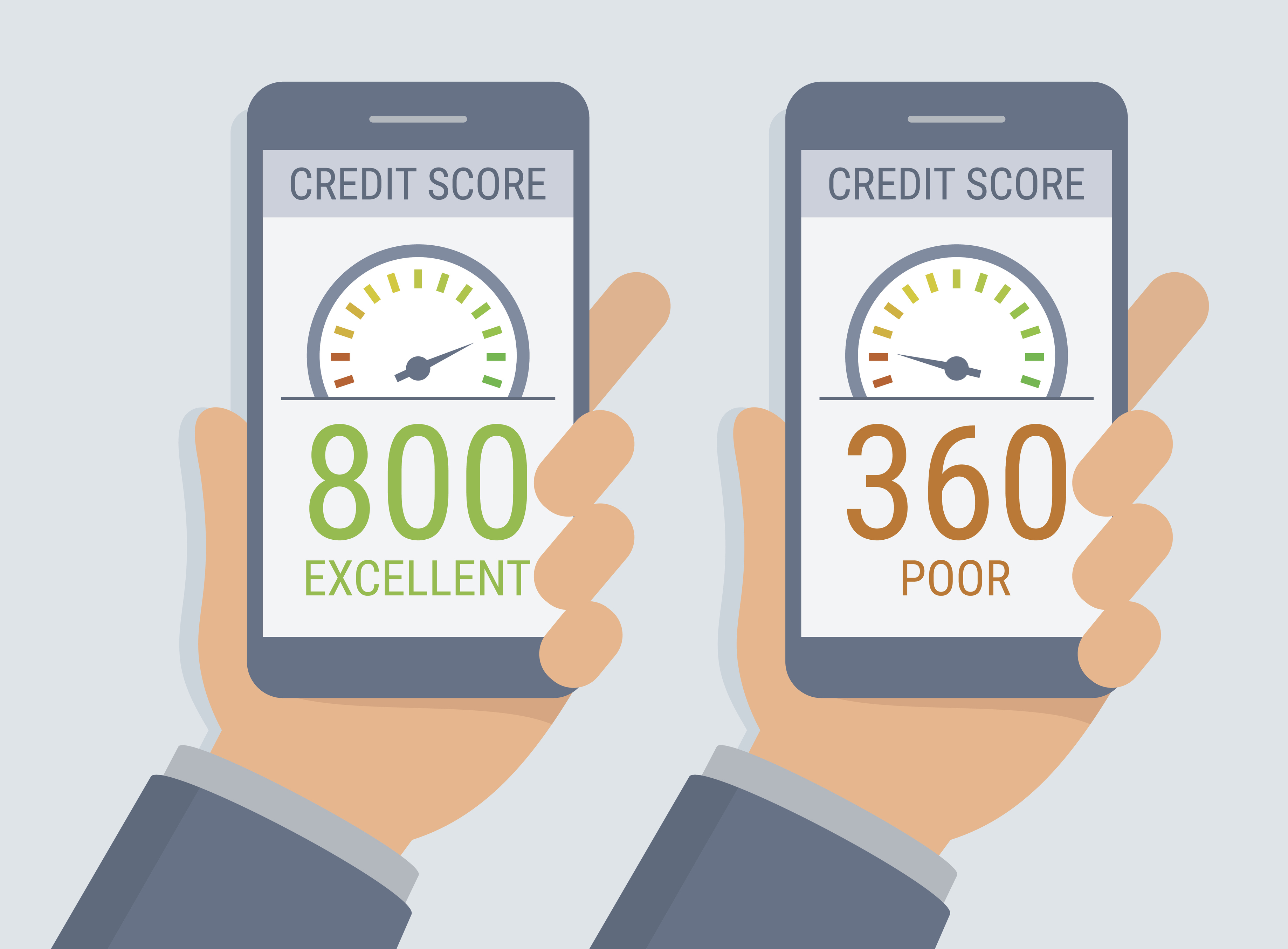How to Repair Your Credit

By Tracy Scott
Bad credit doesn’t always result in a credit denial. But, higher interest rates on home mortgages, auto loans, and credit cards can slow down your ability to save money towards retirement or other financial goals. An adverse credit history may even require you to pay security deposits for utilities or cellphone service and influence the cost of life insurance. To put it bluntly, bad credit can mess with your wallet in the short term and derail your plans for a secure financial future.
If you’ve been denied credit recently or are unable to refinance your current loans at a lower interest rate, then you need to take action to improve your financial health. While improving your credit takes time, it can be done by focusing on a few specific credit behaviors.
Here’s what you can do to repair your credit.
Order a copy of your credit report.
To repair your credit, you need to know what’s on your credit report.
Details of how you’ve managed credit is reported to one or more of the major credit reporting bureaus: Equifax, TransUnion, and Experian. You’re able to receive a free copy of your report from each bureau once every 12 months by requesting them at AnnualCreditReport.com.
An improved credit history results in an improved credit score. A credit report is the foundation of your credit score. Financial institutions and companies who extend credit want assurance that you will pay them back as agreed.
Potential creditors look to your credit score to assess the risk of extending you new credit or authorizing credit limit increases on an established account. Your credit score is a three-digit number that indicates your level of creditworthiness based on a variety of factors.
The two most popular credit scoring agencies, FICO®, and VantageScore use much of the same information to figure your credit score but vary on the exact weight given to each. Various scoring models are used, but the basis of them all is your credit report.
Once you have your report, review the summary section which should describe the factors contributing to your less than stellar credit profile.
Bad credit histories have these issues in common:
Issue #1: Late Payments
Past due or late payments can send your credit profile plummeting. Your payment history has the most significant influence on your credit. Get current and stay current with any past due accounts. If you’re having trouble remembering to make payments, sign up for e- payment reminders or set up automatic payments from your checking account each month.
Pay your bills on time, and eventually, you’ll have a solid history of on-time payments which can only help your credit.
Issue #2: High Balances
If your credit account is at or near the credit limit, pay it down ASAP. Financial experts recommend keeping your balances under 30% of the available limit. Maxed out accounts are a sign you may be a risky borrower and trying to take on more credit than you can manage. Pay down debt and keep balances low to see improvements with your credit.
Issue #3 New Credit Applications
Rapid account openings make you appear at a higher risk of being overextended. If your credit is bad, but you can still open new accounts – stop! Opening new accounts simply because you can will not help improve your credit.
Focus on paying down your debt and making payments on time.
Issue #4 Closing Accounts
Keep your accounts open even if you no longer use them. Older accounts can reflect the history of an experienced borrower and credit age is a factor in credit scoring. It’s okay to pay balances in full each month. Just remember to pay them on time.
*BONUS TIP*
Don’t automatically assume that information on your credit report is infallible. It’s possible for a credit report to contain inaccuracies about your past and current credit accounts. Each credit reporting bureau allows consumers to dispute inaccurate information that appears on a credit report. Review your report carefully paying particular attention to the following:
- Your legal or maiden name or variants of your legal name
- Your current or prior places of residence
- Credit accounts you did not open
Be prepared to submit supporting documentation to back up your claim. You should know within 45 days if your dispute is successful.
You have the power to repair your credit. Your credit score is not based on your income, age, gender, marital status, or your financial assets but only on how you use credit. Making payments as agreed and keeping overall debt low has the largest impact on your credit score. With the right understanding of what’s hurting your credit, you can do something about it.
As you work to repair your credit don’t forget to monitor your credit report monthly for improvements. Your credit won’t be fixed overnight, and it takes intentional effort to see changes. By adjusting your credit behaviors, you will see how having good credit can reopen the doors of financial possibility.
